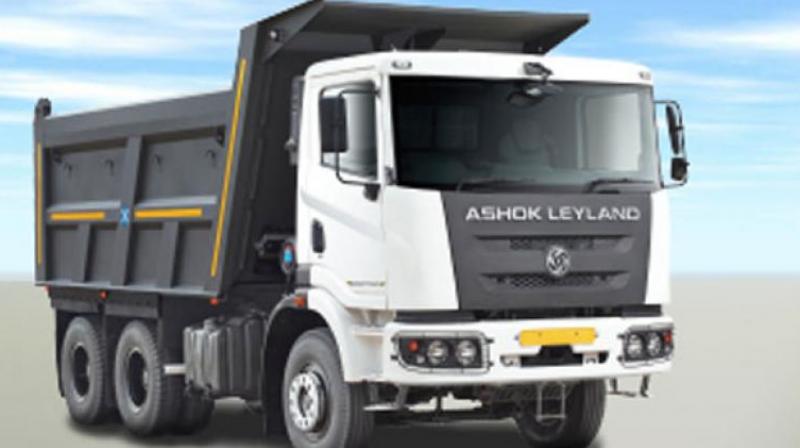Ashok Leyland plans Rs 600 crore capex this fiscal

Chennai: Hinduja Group flagship firm Ashok Leyland today said it has lined up around Rs 600 crore capex for this fiscal to enhance cabin and engine capacity besides setting up new assembly units in Kenya and Ivory Coast.
The company is bullish on the Indian commercial vehicle market and expects the industry to grow around 10-15 per cent this fiscal. "We will have capex (capital expenditure) to enhance capacity of cabin and engines.
We will not be building new plant for enhancing overall capacity," Ashok Leyland Managing Director Vinod Dasari told PTI here. He further said the second requirement of capex will be for developing future technologies like modular vehicles and BS-VI emission norm.
The company will also be investing in setting up small plants in Andhra Pradesh, Kenya and Ivory Coast. Asked how much has the company earmarked as capex for the fiscal, Dasari said: "We are looking at Rs 500-600 crore per year."
There will be no acquisition, he added. Elaborating on the company's plans for assembly plants in Africa, Ashok Leyland President, Global Sales and Distribution, Rajiv Saharia said these would be smaller units with an initial capacity of rolling out 200 units a month, scalable to 400 units.
"We are hopeful to set up the plants in Kenya and Ivory Coast within this fiscal but land acquisition has been a bit of an issue there," he added. The Kenyan plant will be used to cater to neighbouring countries in East Africa, while the Ivory Coast unit will do the same for West Africa, Saharia added.
He also said the capacity of the company's plant in Ras al-Khaimah will be enhanced beyond 400 units a month to cater to increased demand from the Gulf Cooperation Council (GCC) region.
On the domestic market, Dasari said the three main drivers of commercial vehicle sales -- GDP growth, infrastructure and mining -- are firing simultaneously at the moment. "We expect the industry to grow around 10-15 per cent this fiscal," he said.
The first quarter will be a bit slow as people are still evaluating the BS-IV transformation. "However, there is a lot of pent up demand which we think will transform into sales sooner rather than later," Dasari added.

